The Google Pixel 8a is an AI-driven ‘beginner’s smartphone’ that eclipses its pricier rivals
We get our hands on Google’s latest device, the mid-range Pixel 8a, a stripped-down smartphone that still packs an excellent camera, solid hardware and an AI-powered software punch
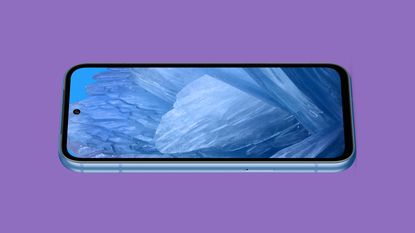
A new smartphone is usually a good measure of the speed of technological advancements. In the time between the launch of Google’s Pixel 7a as an entry-level model and the arrival of the all-new 8-series Pixel models, the world has gone crazy for AI in all its forms, from photo editing through to the ability to screen unwanted calls.
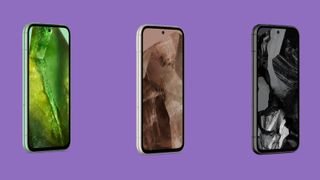
At just half the price of the excellent Pixel 8 Pro, does the 8a have everything the casual user needs? First up, Google bills this as a phone for beginners, i.e. young people. At a time when the correlations between smartphone use and age and general wellbeing are being scrutinised more than ever before, it feels a bit disengenous to pitch such a powerful device as the pocket equivalent of training wheels.
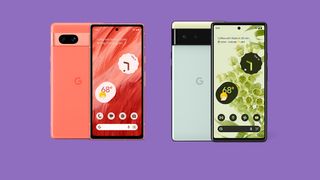
This youth-orientated approach is evidenced by the relatively bold and playful colour set, more distinct and vibrant than the low-key palette of the ‘grown up’ models. Yes, there’s recycled materials, but also a new emphasis on resilience, with a scratch-resistant 6.1” ‘Actua’ display, metal camera housing and water and dust resistance. So far, so good. Like all Pixels (and modern smartphones in general), the 8a feels well weighted and substantial in the hand, only to have this tactility reduced by the addition of the (essential) case.
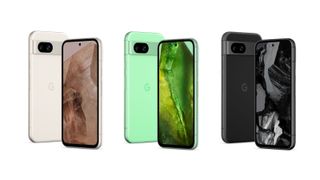
The on-screen experience has much in common with its pricier siblings, running the latest iteration of Android (14), with the more prominent addition of an in-built AI assistant, Gemini (formerly Bard). In theory, Gemini can be asked to create summaries of long documents or emails, or search items online simply by circling them on the screen. In practice, it’s little more than a glorified version of Google’s already excellent Lens application, which has been baked into Pixels since it debuted in 2017.
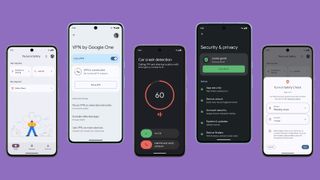
AI also underpins the 8a’s photographic skills. The device uses the Google Tensor G3 chip, just like the 8 and 8 Pro, but cuts costs by only having two front-facing cameras, a 64MP Quad PD wide camera and a 13MP ultrawide camera. Pixel cameras are some of the best in the business, combining quality hardware with unrivalled processing power. With excellent low light performance, 4K video from front and rear cameras, and a bunch of proven AI-driven tools like Photo Unblur, Magic Eraser and Best take, the 8a will serve casual photographers, power users and the selfie-obsessed equally well.

A host of security measures, including the Google One VPN and a promised seven years’ worth of software updates and supports, are also baked in, and the phone is available with 8GB RAM and 128 or 256GB of storage. Power users might be put off by the implication that the ‘a’ suffix implies a knocked-down version of Google’s flagship devices. For those unbothered by the smartphone status game, the Pixel 8a is easy to recommend as a straightforward but extremely powerful way to access the omnipotent Google eco-system.
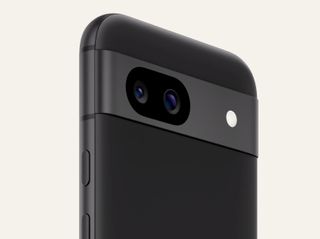
Google Pixel 8a, from £499, Store.Google.com
Wallpaper* Newsletter
Receive our daily digest of inspiration, escapism and design stories from around the world direct to your inbox.
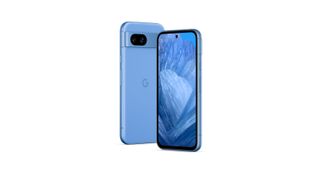
Jonathan Bell has written for Wallpaper* magazine since 1999, covering everything from architecture and transport design to books, tech and graphic design. He is now the magazine’s Transport and Technology Editor. Jonathan has written and edited 15 books, including Concept Car Design, 21st Century House, and The New Modern House. He is also the host of Wallpaper’s first podcast.
-
 ‘You should not take yourself too seriously or you risk becoming boring’: Luca Guadagnino and Nicolò Rosmarini on Homo Faber 2024
‘You should not take yourself too seriously or you risk becoming boring’: Luca Guadagnino and Nicolò Rosmarini on Homo Faber 2024As the design and film worlds flocked to Venice at the weekend for Homo Faber and the Venice Film Festival, Wallpaper* sat down in a cool salon with two men in hot demand to take their temperature on craft, interiors and gold leaf cable covers
By Hugo Macdonald Published
-
 Haider Ackermann is the new creative director of Tom Ford
Haider Ackermann is the new creative director of Tom FordFrench-Colombian designer Haider Ackermann will make his debut at Tom Ford for A/W 2025, replacing Peter Hawkings, who left the brand earlier this year
By Jack Moss Published
-
 Politics, oil crises and abortion rights infiltrate the optimistic 1970s interiors of Villa Benkemoun
Politics, oil crises and abortion rights infiltrate the optimistic 1970s interiors of Villa BenkemounFor the 50th anniversary of Villa Benkemoun in Arles, a new exhibition critically explores the year of 1974 through contemporary and historic artworks that antagonise the optimism of its design
By Harriet Thorpe Published
-
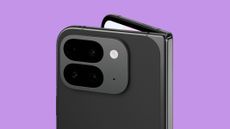 Is the new Google Pixel 9 Fold Pro the ultimate do-it-all device?
Is the new Google Pixel 9 Fold Pro the ultimate do-it-all device?Google's Pixel 9 Pro and Pixel 9 Fold Pro go head to head in our hands-on test of the latest generation of AI-infused smartphones
By Jonathan Bell Published
-
 New earbuds for audio and AI interaction, courtesy of Google, Denon, and more
New earbuds for audio and AI interaction, courtesy of Google, Denon, and moreThe age of AI comes to your earbuds with the arrival of the new Google Pixel Buds Pro 2. We explore these and seven more of the newest and best-designed wireless earbuds as alternative choices
By Jonathan Bell Published
-
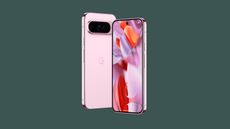 We meet Google’s head of phone design Claude Zellweger to explore the new Pixel 9 series
We meet Google’s head of phone design Claude Zellweger to explore the new Pixel 9 seriesGoogle’s annual drop of new mobile devices is here. We get hands on with the Pixel 9 family and discuss design, AI and smartphone longevity with Google’s Claude Zellweger
By Jonathan Bell Published
-
 Nothing explodes its mid-range masterpiece to create the Nothing Phone (2a) Plus
Nothing explodes its mid-range masterpiece to create the Nothing Phone (2a) PlusWe get our hands on the new Nothing Phone (2a) Plus, an upgraded and enhanced smartphone that promises a better photographic experience, smarter software and more
By Jonathan Bell Published
-
 Can HMD’s Better Phone Project shift the dial on excessive smartphone use?
Can HMD’s Better Phone Project shift the dial on excessive smartphone use?Human Mobile Devices wants to explore ways to diffuse the digital deluge affecting young people’s mental health, and it’s looking for everyone’s help
By Jonathan Bell Published
-
 Is Google’s Gemini AI the best way of getting the most out of our machines?
Is Google’s Gemini AI the best way of getting the most out of our machines?From summaries to lists of suntan lotion and swimsuits, Google reckons Gemini can save us all time and effort. We dig into new uses for AI
By Jonathan Bell Published
-
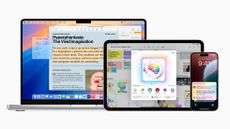 Apple Intelligence has landed, giving Siri the ChatGPT treatment and adding new AI-powered features and functions
Apple Intelligence has landed, giving Siri the ChatGPT treatment and adding new AI-powered features and functionsApple’s 2024 Worldwide Developers Conference marked the debut of Apple Intelligence, the company’s long-awaited riposte to Silicon Valley’s current AI obsession
By Jonathan Bell Published
-
 Nothing's first limited edition smartphone is 'a story of colour'
Nothing's first limited edition smartphone is 'a story of colour'The Nothing Phone (2a) Special Edition gets back to basics with a simple primary colour scheme to accentuate Nothing’s different design approach
By Jonathan Bell Published